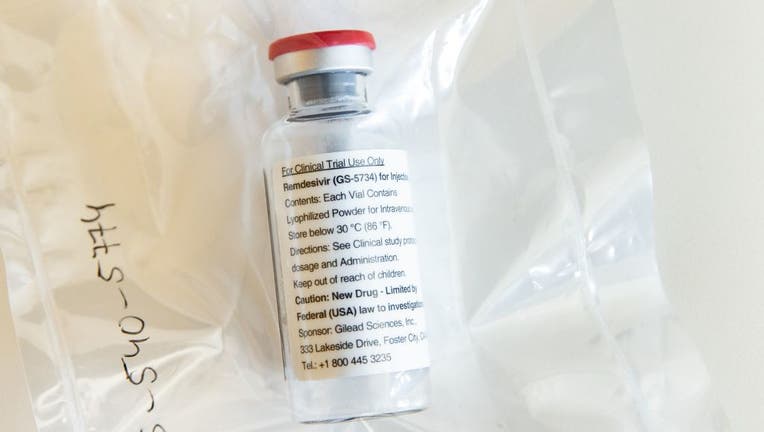Mayo Clinic researchers testing possible COVID-19 treatment remdesivir

One vial of the drug Remdesivir lies during a press conference about the start of a study with the Ebola drug Remdesivir in particularly severely ill patients at the University Hospital Eppendorf (UKE) in Hamburg, northern Germany on April 8, 2020, a
ROCHESTER, Minn. (FOX 9) - The National Institutes of Health says testing shows an already existing drug may be effective in fighting COVID-19. And it’s a drug that’s already been tested by Mayo Clinic doctors.
It’s not the only treatment in testing, but it’s one of the first that’s showing some effectiveness in a randomized clinical trial, which is considered the gold-standard medical research.

Mayo Clinic researchers testing possible COVID 19 treatment remdesivir
The National Institutes of Health says testing shows an already existing drug may be effective in fighting COVID 19
The drug is called remdesivir. It’s maker, Gilead Sciences, has spent ten years developing the drug.
Starting in January, it launched an investigation with the National Institute of Allergies and Infectious Diseases to discover if it could fight COVID-19.
The institute’s Dr. Anthony Fauci says the initial trial is positive.
"The data shows that remdesivir has a clear cut, significant, positive effect in diminishing the time to recovery," said Dr. Fauci.
At Mayo Clinic, its chair of infectious diseases, Dr. Elie Berbari, says the Redesivir works by disabling the virus’ ability to reproduce.
"It is an anti-viral," said Dr. Berbari. "It attacks the virus directly by inhibiting the function of the virus. And it’s very effective early on when the virus is replicating in the body and the lungs. And preventing the damage that may occur as a result of that high level replication.”
But it’s not the only drug or therapy under review. Vice President Pence visited Mayo this week to review its trial of convalescent plasma. Mayo doctors say the anecdotal results are positive.
But researchers are looking at other avenues.
"Other anti-virals are being studied and many of them are repurposed drugs," said Dr. Berbari. "Some that we’ve used for HIV, others that we’ve used for Hepatitis-C. Some that we’ve used for malaria. And so forth that might have effects either through effecting the virus itself or around the virus by changing chemical properties of cells, that prevents the virus from replicating in our human cells in the upper airways and the lungs.”
Dr. Berbari says some of the other anti-virals they are testing are repurposed drugs. Some are used for HIV, and other that they have used for Hepatitis C.

